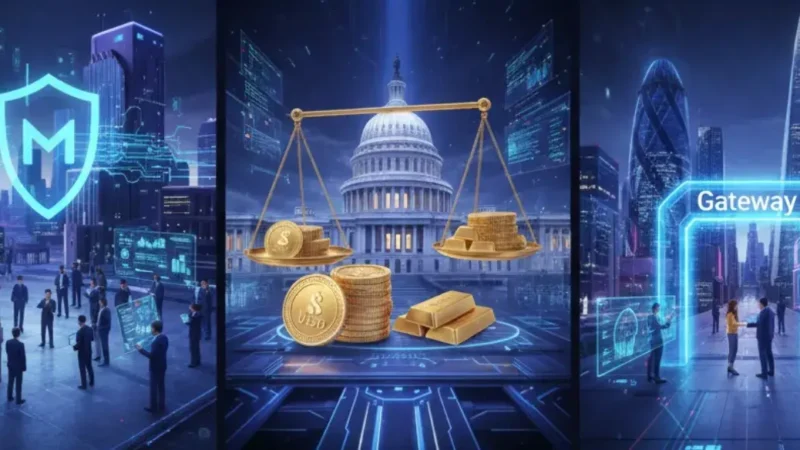CANSEE wants to regulate DeFi

A new US law called CANSEE wants to regulate DeFi and is venturing into completely new realms. Due to the way it works, the sector is considered uncontrollable. Have US senators found a way to crack the system?
This new US law wants to regulate DeFi
A new US law wants to regulate DeFi. It is called the Crypto-Asset National Security Enhancement Act of 2023 ( CANSEE ) .
The law reached the US Senate yesterday and was created through the cooperation of members of the Democratic and Republican parties. Democrat Mark Warner, his party colleague Jack Reed and Republicans Mike Rounds and Mitt Romney were in charge.
The aim of the proposed law is to oblige DeFi protocols to take central positions from which they can gain control over their own operations and the funds used.
So, decentralized DeFi protocols are meant to adopt the way centralized banks work, without there being a real middleman. The idea of the law contradicts the principles of DeFi. The decentralized financial system explicitly wants to do without middlemen or central authorities in order to rule out censorship, manipulation and external control.
The makers of the arrangement still want to put it on it. In a press release, they explain the background to their proposal as follows:
In an effort to prevent money laundering and halt crypto crime and sanctions violations, a group of U.S. senators are introducing the new law that will require decentralized financial services (DeFi) to meet the same anti-money laundering (AML) and economic sanctions compliance obligations as other financial firms, including core crypto trading platforms, casinos, and even pawnshops.
So far, legislators have mostly rejected such requirements because they came to the conclusion that legal requirements remain ineffective due to the decentralized nature of the protocols. Even the EU law MiCA refrained from requirements for DeFi.
To circumvent this lawlessness, US senators want to impose the law on those operating behind the protocol or providing it to the public.
US Crypto Act Threatens DeFi Investors
But the Crypto Security Act also threatens DeFi investors. If no person can be found behind the development or operation of the respective protocol, the law threatens penalties for investors who have invested more than $25 million in the project.
The responsible persons or organizations would then be required by law to collect user data, implement anti-money laundering systems, block sanctioned blockchain addresses and report suspicious activity to government organizations.
Crypto ATMs would also be subject to stricter controls. In order to be able to use this, the user must first go through a KYC process – a requirement that has existed in other countries for years.
The aim is to be able to understand exactly which people have which funds. This is the only way to prevent money laundering, which is currently being carried out en masse by drug dealers in the USA using ATMs by exchanging the cash they have taken for crypto.
CANSEE aims to abolish privacy
CANSEE aims to abolish the current privacy in the DeFi sector. Users do not need to go through any identification processes to use decentralized crypto exchanges or similar systems. This area differs significantly from central crypto exchanges that identify their users.
DeFi is designed to offer anonymity. This can allow malicious and criminal actors to circumvent traditional financial regulation tools.
Even if the law is passed successfully, it remains questionable how effective the measures really are. The financing of DeFi through crypto is already partly democratic and anonymous today.
Some developers work from behind the scenes and thus do not offer authorities a target for attack. This situation can be observed more and more since the well-known DeFi programmer Alex Pertsev was arrested.




